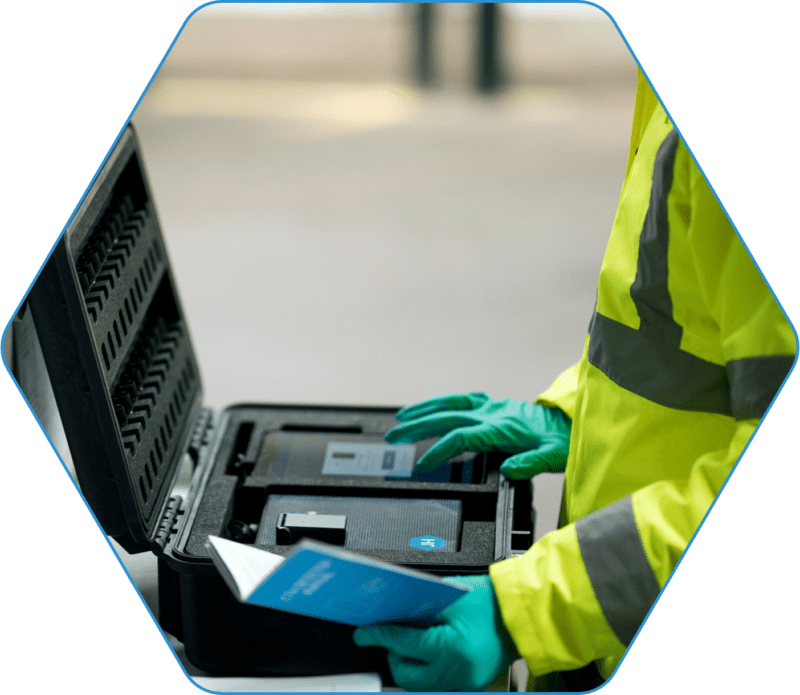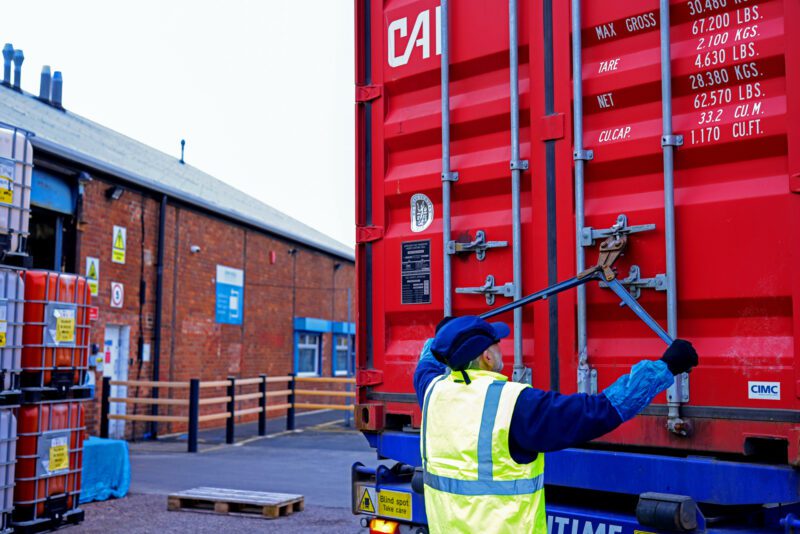
HVO: A Step Along the Renewable Journey?
ShareIntroduction
As the global demand for sustainable energy solutions continues to grow, Hydrotreated Vegetable Oil (HVO) is emerging as a key player in the renewable fuel landscape. However, the journey from feedstock to end customer is complex, and ensuring the sustainability and authenticity of HVO requires rigorous certification and advanced traceability solutions.
This is where PURECHAIN comes into play—offering cutting-edge fuel marking and traceability technologies that help HVO companies maintain product integrity downstream. Partner this with certification bodies for upstream feedstocks, and HVO producers can guarantee that their fuel meets the highest standards of sustainability and authenticity, ensuring consumer trust and regulatory compliance.
Key Definitions
Biofuels – Biofuels are renewable fuels made from organic materials such as plants or waste.
Feedstocks – Feedstocks are raw materials used to produce energy, fuel, or other products. In the context of biofuels, feedstocks typically include agricultural crops, waste materials, and other biomass sources.
Hydrotreating – A catalysed reaction through which hydrocarbons are produced from organic feedstocks.
A Third Gen Biofuel
HVO, a third-generation biofuel, marks a significant advancement in biofuel technology by utilising the hydrotreatment of vegetable oils or animal fats to produce a high-quality fuel that can be used directly in existing diesel engines. Unlike first-generation biofuels, which are derived from food crops and compete with food production, or second-generation biofuels, which use non-food biomass but face economic challenges, HVO offers a structured and more sustainable alternative by leveraging waste materials that would otherwise be discarded. This approach aligns with circular economy principles, minimising waste and adding value to by-products from other industries, thereby addressing many of the sustainability issues associated with earlier biofuels.
PURECHAIN marker programs can help authenticate the quality and origin of HVO, promoting consumer trust and supporting the broader adoption of HVO in the market, even in regions with underdeveloped distribution channels. This can ultimately contribute to making HVO a more competitive and sustainable option in the renewable energy landscape.

Feedstock Challenges in HVO Production
The Renewable Energy Directive II (RED II) has emphasised the need for using waste materials rather than crops grown specifically for fuel production. This shift aims to address the food versus fuel debate, ensuring that agricultural land is used primarily for food production while utilising waste products for fuel. Therefore, the feedstock used for producing HVO is a critical factor in determining its sustainability.
While waste oils and fats are preferable, they are available in limited quantities. The demand for HVO could drive increased use of virgin vegetable oils, such as palm oil, which has been linked to deforestation and habitat destruction. Ensuring a sustainable and ethical supply chain for feedstocks is essential to mitigate these impacts.
Understanding the XTL Challenge
XTL technology refers to the conversion of various feedstocks into liquid fuels, including Gas-to-Liquid (GTL), Coal-to-Liquid (CTL), and Biomass-to-Liquid (BTL). HVO falls into the BTL category, utilising biological feedstocks.
This poses a significant issue for the credibility of HVO because other XTL processes can yield fuels with similar chemical properties to HVO, making it difficult to verify whether the fuel is truly derived from renewable, sustainable feedstocks.
This similarity undermines the credibility of HVO because it raises concerns about the potential for mislabelling or blending with non-renewable fuels, which could dilute HVO’s environmental benefits. If HVO cannot be reliably identified and separated from less sustainable fuels, it risks losing its reputation as a genuinely green alternative, which is essential for gaining consumer trust and meeting regulatory standards.
Current methods like carbon-14 analysis can help, but these tests are costly and time-consuming. The versatility of XTL technologies creates challenges for HVO companies, challenges that can be effectively addressed through advanced fuel marking technology.
Why a Marker Program is Essential for Your HVO Strategy
When it comes to implementing marker programs like PURECHAIN for feedstocks, a significant challenge arises due to the scattered and diverse locations of these sources. This geographical dispersion makes it incredibly difficult to trace and validate the origins of feedstocks as they move through the supply chain, particularly as they approach the refinery stage.
Certification bodies, such as the International Sustainability and Carbon Certification (ISCC), play a crucial role in addressing this challenge. They are responsible for rigorously certifying feedstock sources, ensuring that they meet stringent sustainability criteria and environmental regulations. However, the complexity of sourcing means that some companies may struggle to maintain ISCC accreditation. The Environmental Defence Fund has pointed out that improper sourcing practices can result in the loss of certification, particularly when deforestation or biodiversity loss is involved.
This certification process lays the groundwork for effective marker programs further down the supply chain, which rely on the integrity of the certified feedstocks. For a full supply chain to be effectively ensured, it relies on co-operation between certification bodies and marker businesses.
When considering the downstream HVO supply chain, PURECHAIN offers a critical solution for HVO companies aiming to ensure the integrity of their products. By implementing a marker program like PURECHAIN, these companies can guarantee that their fuel is exactly what they claim it to be, providing consumers with confidence that they are getting the sustainable, high-quality product they expect.
PURECHAIN’s fuel marking and traceability solutions work to maintain the authenticity and sustainability of Hydrotreated Vegetable Oil (HVO) in the market. These technologies work by incorporating unique markers into HVO, which can be detected and verified at multiple points in the downstream supply chain. PURECHAIN’s traceability solutions offer comprehensive monitoring of HVO. By adopting PURECHAIN, HVO companies can enhance transparency, build consumer trust, and ensure that their products are both environmentally responsible and authentically represented in the market.
Global Implementation and Government Plans
Regulations are getting stricter, and proving the authenticity of your HVO products is becoming more important. Several nations and regions are actively implementing HVO as a “stepping stone” from fossil fuels to a more renewable alternative. For instance, Germany and Scandinavian countries, particularly Finland, are leading the way in offering HVO at fuel pumps. Neste, a Finnish company, markets its 100% renewable HVO under the brand name “Neste MY”.
In the UK, the UK Independent Fuel Distributors Association (UKIFDA) is actively lobbying for the use of HVO in heating applications, particularly in rural areas where transitioning to electric heating is impractical. They are advocating for HVO as a viable replacement for kerosene in heating systems, emphasising its potential to reduce carbon emissions from home heating.
Conclusion
In the transition to a more sustainable energy future, HVO stands out as a promising solution, but its success hinges on overcoming significant challenges related to feedstock sourcing, production costs, and market infrastructure. Certification bodies like the International Sustainability and Carbon Certification (ISCC) play a vital role in verifying the sustainability of feedstocks, providing a foundation for effective marker programs.
By integrating fuel marking technologies into downstream supply chains, HVO producers can enhance transparency, build consumer trust, and position themselves as leaders in the renewable fuel market. As global regulations tighten and the demand for sustainable energy grows, the adoption of comprehensive certification and marker programs will be essential for the widespread success of HVO in the energy transition.
Call to Action
Certification bodies and HVO companies both play critical roles in ensuring the sustainability and integrity of renewable fuels. We recommend HVO companies to work stringently with certification bodies to certify the credibility of feedstocks, ensuring they meet stringent sustainability standards. When looking at the downstream supply chain, John Hogg’s PURECHAIN marking programs offer a reliable solution for safeguarding the authenticity and quality of your products through advanced fuel marking technologies, enabling downstream traceability, maintaining transparency, building consumer trust, and ensuring compliance with regulatory and market expectations.



